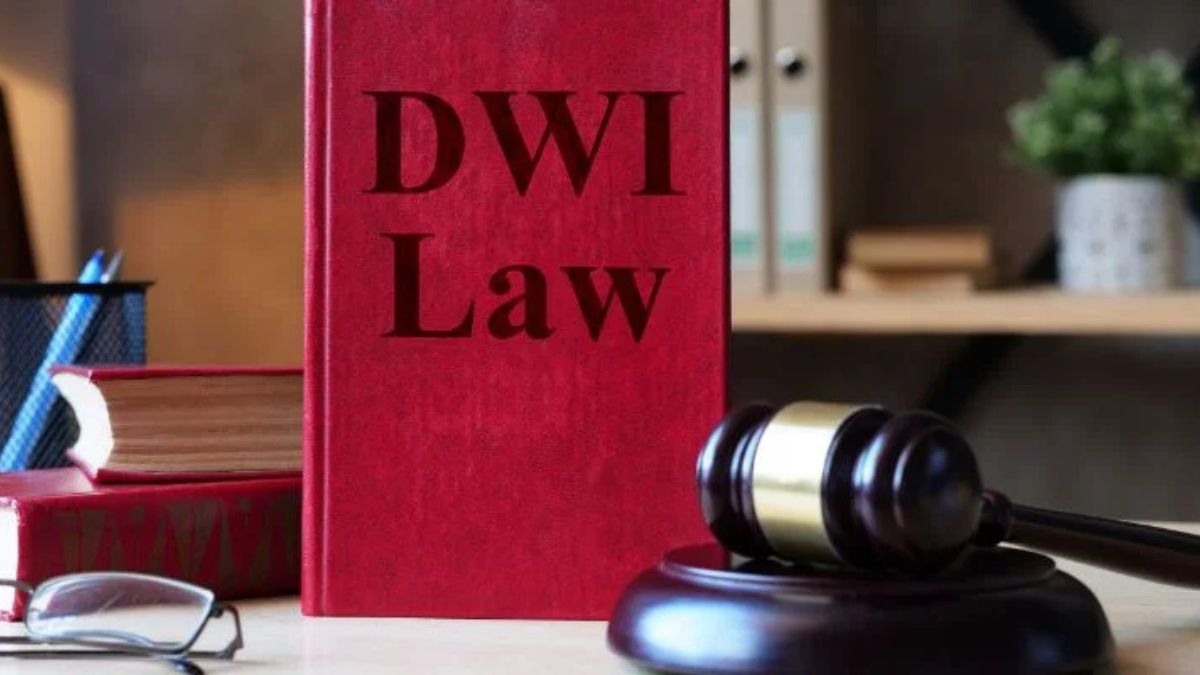LAW
How to File for Divorce in Alabama: A Step-by-Step Guide

Filing for divorce can be challenging, but knowing the process eases the burden. In Alabama, understanding the steps to file for divorce helps you move forward with clarity. This guide outlines the necessary steps to ease your journey. First, gather essential documents. These include your marriage license and any previous court orders. Next, understand Alabama’s residency requirements. You or your spouse must live in Alabama for at least six months. After meeting these conditions, consider if you need an Alabama divorce lawyer. While not required, legal guidance offers peace of mind and ensures accuracy. Then, choose the right type of divorce. Alabama offers uncontested or contested options. Uncontested divorces usually resolve quicker with less conflict. Filing for divorce is a life change, but you can navigate it with the right tools and information. Follow this guide to take decisive, informed steps toward a new chapter.
Understanding Divorce Types
Alabama provides two main types of divorce: contested and uncontested. Knowing the difference helps you decide which approach suits your situation best.
| Uncontested Divorce | Contested Divorce |
| Both parties agree on all terms | Disagreements exist over terms |
| Usually faster and less costly | Often involves litigation and higher costs |
| Minimal court involvement | Significant court involvement |
For an uncontested divorce, both parties need to agree on key issues like property division, child custody, and support. In contrast, a contested divorce requires a judge to resolve disputes.
Filing the Divorce Papers
Once you choose your divorce type, the next step is filing the papers. You need to file a Complaint for Divorce with the local circuit court clerk. This document outlines your desire to end the marriage.
After filing, you must serve the papers to your spouse. This process ensures they are aware of the impending divorce. You can do this through certified mail or a process server.
Residency Requirements and Waiting Period
In Alabama, residency is crucial. As mentioned, at least one spouse must have lived in the state for six months. After filing, Alabama imposes a waiting period of 30 days before the divorce can be finalized.
During this time, you might need to attend court hearings, especially if the divorce is contested. These hearings address temporary arrangements regarding custody or support.
Property Division and Alimony
Alabama follows equitable distribution for property division. This means the court divides marital property fairly, though not always equally. Factors include the length of the marriage and each spouse’s contribution.
Alimony might be ordered based on need and ability to pay. The court considers factors like the length of the marriage, the standard of living, and each spouse’s earning capacity.
Child Custody and Support
Decisions about children focus on their best interests. Alabama courts encourage shared custody, but one parent may receive primary custody. Factors include parental involvement and the child’s needs.
Child support calculations follow Alabama’s guidelines. They consider parental income and the number of children. You can find more details in the Alabama Child Support Guidelines.
Finalizing the Divorce
After the waiting period and addressing key issues, the court reviews the case. If everything meets legal standards, the judge signs the divorce decree. This document legally ends the marriage.
If your divorce is uncontested, the process can be straightforward. Contested divorces may take longer due to the need for resolution through court hearings.
Conclusion
Filing for divorce in Alabama involves several steps, but understanding each part makes the process more manageable. Begin by gathering necessary documents and meeting residency requirements. Choose the right divorce type and file the papers promptly. During the process, stay informed about property division, alimony, and child custody. Following these steps with clarity and focus helps you transition to a new chapter with confidence.
LAW
What Is Elder Law and Why Does It Matter for Michigan Seniors?

Elder law is essential for Michigan seniors as it addresses legal issues affecting aging adults and their families. You may face challenges related to health, finances, and long-term care. Elder law provides guidance to help you navigate these areas with confidence and security. Mannor Law Group specializes in elder law, offering compassionate support for seniors. A clear understanding of your rights and options can make a significant difference. Whether you’re planning for the future or dealing with current issues, knowing the basics of elder law empowers you to make informed choices. It covers crucial topics like estate planning, Medicaid eligibility, and guardianship. These decisions impact not only your well-being but also your family’s peace of mind. Knowing your legal rights ensures you receive appropriate care and protection. You deserve a secure and dignified path through later life. Elder law supports you in achieving this goal.
Understanding Key Areas of Elder Law
Elder law covers several critical topics that affect your life as you age. Here are the primary areas where elder law can provide support:
- Estate Planning: This involves preparing for the transfer of your assets. It includes creating wills and trusts. Proper estate planning ensures your wishes are honored and reduces the burden on your family.
- Medicaid Planning: If you require long-term care, Medicaid can help cover costs. Elder law helps you understand eligibility and application processes. For more details on Medicaid eligibility in Michigan, visit the Michigan Department of Health and Human Services.
- Guardianship and Conservatorship: These legal arrangements protect individuals who cannot make decisions for themselves. Elder law assists in establishing appropriate guardianship or conservatorship.
Comparing Key Aspects of Elder Law
| Aspect | Purpose | Benefits |
| Estate Planning | Manage and distribute assets | Ensures wishes are followed, reduces legal battles |
| Medicaid Planning | Access long-term care funding | Provides financial relief, protects assets |
| Guardianship | Designate decision-makers | Ensures care and safety, assigns trusted individuals |
Why It Matters for You and Your Family
Elder law is not just about legal documents. It’s about securing your future and ensuring your wishes are respected. Here’s why it matters:
- Protection: Safeguards your rights and assets.
- Security: Provides peace of mind knowing you are prepared.
- Stability: Reduces stress for you and your loved ones.
Steps to Take Now
Waiting can lead to complications. Here are steps you can take now to benefit from elder law:
- Evaluate Your Situation: Assess your current needs and future goals.
- Consult a Specialist: Reach out to experts like the National Academy of Elder Law Attorneys for guidance.
- Create a Plan: Develop a comprehensive plan that covers all aspects of elder law relevant to you.
Each of these steps ensures you are prepared for the future. Comprehensive planning avoids common pitfalls and offers assurance for you and your family.
Conclusion
Elder law is a vital resource for Michigan seniors. It provides you with the tools to face legal challenges with confidence. By taking proactive steps, you safeguard your rights and ensure a dignified life. With expert guidance, you can make informed decisions that protect your interests and those of your loved ones. Don’t wait until it’s too late. Begin your journey with elder law today, and secure peace of mind for tomorrow.
LAW
Understanding New York’s DWI Laws And Penalties

Facing the reality of New York’s DWI laws can be daunting, but understanding them is crucial. You might feel overwhelmed, and that’s okay. Let’s simplify it together. These laws are strict. Drinking and driving in New York isn’t a minor offense. Penalties can be severe, impacting your freedom and finances. You risk license suspension, hefty fines, and even jail time. Knowing these facts helps you make better choices on the road. It’s also essential to recognize when to seek help. A DWI lawyer can guide you through this complex process. They provide the expertise you need to navigate the legal system. Remember, if you’re ever in doubt, legal support is available. This knowledge could be your best defense. Understanding the consequences helps protect yourself and others. Stay informed and make safe choices. Your awareness matters.
What is DWI?
Driving While Intoxicated (DWI) means operating a vehicle while impaired by alcohol. In New York, this is determined by measuring Blood Alcohol Content (BAC). A BAC of 0.08% or higher is considered DWI for adults. For commercial drivers, it’s 0.04%. Under 21? Even a BAC of 0.02% can lead to charges. Understanding these levels is important. It tells you how little alcohol it takes to be over the limit.
Consequences of a DWI
Penalties vary based on factors like BAC level, prior offenses, and whether someone was harmed. Let’s look at what you might face for your first DWI offense. Here’s a simple breakdown:
| Offense | Fine | Jail Time | License Suspension |
| First DWI | $500 – $1,000 | Up to 1 year | Minimum 6 months |
Now consider the impact of a second offense. Penalties increase significantly:
| Offense | Fine | Jail Time | License Suspension |
| Second DWI | $1,000 – $5,000 | Up to 4 years | Minimum 1 year |
As you can see, consequences escalate rapidly. Multiple offenses lead to harsher penalties. Consider the social and economic costs. Legal fees and increased insurance premiums can be burdensome. An arrest record impacts future employment. Taking these risks seriously is vital.
Protecting Yourself and Others
Prevention is key. Avoid driving if you’ve consumed any alcohol. Plan ahead. Use taxis, rideshares, or public transport. Stay with a friend if needed. Also, be alert. If you see someone unfit to drive, step in. You could prevent harm to them and others.
Understanding Implied Consent
New York’s implied consent law requires drivers to take chemical tests if stopped by police. Refusing these tests results in automatic penalties. These include a minimum of one-year license revocation and a fine. Learn more about these laws at the New York State DMV website.
Role of a DWI Lawyer
If charged with DWI, seeking guidance is essential. A DWI lawyer offers expert advice and representation. They understand the laws and defenses that could affect your case. The right legal support makes a significant difference in outcomes. Always consider your options carefully.
Conclusion
Remember, understanding the law keeps you safer. New York’s DWI laws are strict for good reasons. They protect lives. Don’t underestimate the risks of drinking and driving. Use this knowledge to make responsible choices. If you’re ever in need, legal help is available. Stay informed and be proactive. Your actions ensure not only your safety but also the safety of others on the road. Keep this guide in mind whenever you make decisions about driving and alcohol.
LAW
The Emotional And Financial Toll Of A Wrongful Death

Losing someone you love is never easy. When that loss comes from a wrongful death, the pain multiplies. You face an emotional storm, paired with the harsh realities of financial strain. Grief can cloud your thoughts while bills and expenses quickly add up. In these times, it’s crucial to have guidance. Moxie Law Group understands this dual burden. Their approach prioritizes your emotional and financial well-being. They aim to ease the journey you didn’t sign up for. Dealing with insurance companies, medical records, and legal procedures can feel overwhelming. You need someone who listens and stands up for you. Support and expertise can light the way through this dark tunnel. This blog explores the impacts of wrongful death, offering clarity to those navigating this tough path. Finding the right support can make a significant difference in reclaiming your peace and financial stability.
Emotional Impact of Wrongful Death
Grief is a natural response to losing someone, but wrongful death can stir additional emotions like anger and confusion. This emotional turmoil makes healing slower and harder. The absence of closure can cause feelings of injustice that persist over time. Talking about your feelings often helps. Support groups and counseling services are available to guide you through these hard times.
According to the National Institute of Mental Health, connecting with community support can play a key role in emotional recovery. Knowing you’re not alone can offer significant comfort. Sharing your story and hearing others can create a sense of belonging in a world that feels suddenly unfamiliar.
Financial Consequences You May Face
A wrongful death brings unexpected expenses. You might encounter medical bills, funeral costs, and loss of income. Together, these can strain even the most prepared family. Here is a simple breakdown of potential costs:
| Expense Type | Average Cost |
| Medical Bills | $20,000 |
| Funeral and Burial | $8,000 |
| Lost Income (annually) | $50,000 |
These figures illustrate the sudden financial impact a family may face. However, legal help can assist in recovering some of these costs. Seeking legal guidance could help you receive compensation to ease the financial burden.
Legal Support and Its Role
You might feel unsure about legal proceedings. Attorneys with experience in wrongful death cases can provide the knowledge and reassurance you need. They navigate complex procedures and stand by your side through this challenging process. Legal support helps you manage paperwork, communicate with involved parties, and advocate for your rights.
According to the U.S. Department of Justice, understanding your legal rights is crucial. It empowers you and ensures you are not overlooked in the journey toward closure and compensation.
Steps to Take After a Wrongful Death
When facing a wrongful death, consider these steps to help manage the situation:
- Contact a trusted attorney for an evaluation of your case
- Gather necessary documentation, including medical and employment records
- Seek emotional support through counseling or support groups
These steps aim to create a structured approach in a time of chaos. While nothing can replace your loss, taking action can offer a sense of control and progress.
Final Thoughts
Wrongful death impacts every aspect of your life—emotional, financial, and legal. Understanding these effects helps you navigate the difficult journey ahead. Support is available, and you don’t have to go through this alone. Experts are ready to guide you toward stability and peace.
By seeking help and understanding your rights, you can begin to reclaim your life after such a tragic loss. This process requires time and patience, but it is possible. Finding the right support network is key in helping you heal and manage the practical challenges that come with a wrongful death.
-

 FASHION10 months ago
FASHION10 months agoElegant Winter Party Style: Trendy Long-Sleeve Dresses and Essential Hair Care Tips
-

 HOME11 months ago
HOME11 months agoThe Impact of thejavasea.me Leaks AIO-TLP Users: A Comprehensive Guide
-

 BUSINESS9 months ago
BUSINESS9 months agoHOW TO SHOP GOODWILL OUTLET STORE
-

 SKINCARE&BEAUTY5 months ago
SKINCARE&BEAUTY5 months agoCeylan Eye Cream Reviews: Real Results from Real Users
-

 HOME5 months ago
HOME5 months agoTributePrintedPics Review: A Deep Dive into Quality, Design, and Customer Experience
-

 CULTURE5 months ago
CULTURE5 months agoUncuymaza Unveiled: The Cultural Significance Behind the Craft
-

 LIFESTYLE4 months ago
LIFESTYLE4 months agoDiscovering Luuxly.com: Your Ultimate Guide to Luxury Lifestyle
-

 TECHNOLOGY5 months ago
TECHNOLOGY5 months agoztec100.com: Your Ultimate Guide to Cutting-Edge Tech Solutions
